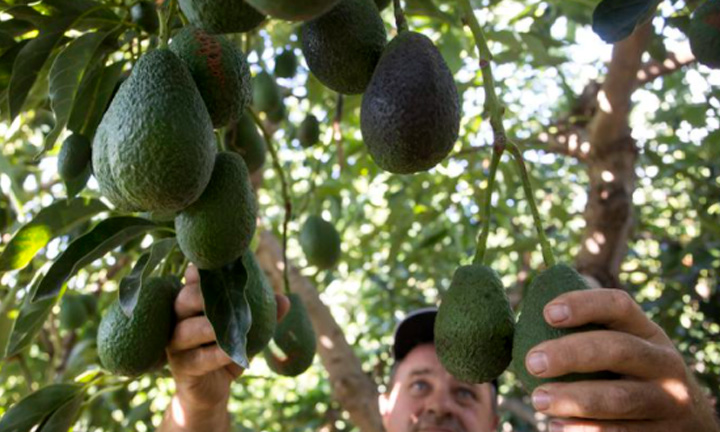SOURCE: Nacho Sanchez, El Pais
TRANSLATION: Freshplaza
Avocado cultivation in Malaga has grown exponentially in recent decades. According to data from the Ministry of Agriculture, Fisheries, and Food, the province has gone from having 50 avocado trees in 1943 to 1.5 million avocado trees in almost 7,000 hectares nowadays.
This increase in the Andalusian province, which has mainly concentrated in the Axarquia region, has been driven by the avocado’s high profitability, as it achieves an annual turnover of nearly 200 million euro. However, avocado production has high water requirements, i.e. about 7,000 m³ per hectare, which hinders this crop’s expansion in a region that has a subtropical climate that is too dry for avocado cultivation and that has limited water resources.
The largest reservoir in the province of Malaga is in the Axarquia, just where the irrigation water for the subtropics comes from. This is the La Viñuela reservoir, which can hold 165.43 hm³. The problem is that it is at 27.03% of its capacity and that the people in the area also depend on this reservoir.
Farmers have a concession of 3,000 m³ per hectare for the recently inaugurated hydrological year, a figure that is well below the requirements of the crop and of previous seasons, and which may be even lower if the drought persists, as the figure is revisable because human consumption takes precedence. “The situation is already unsustainable,” stated Rafael Yus, a spokesman for Ecologists in Action and coordinator of a recent publication entitled The bubble of subtropical crops and the hydric collapse of the Axarquia.
Many farmers have the option of supplementing their irrigation with licensed wells. There are also producers that look for underground waters without having permits to do so or take the water illegally.
Possible solutions
The central board of irrigators is committed to improving the storage of runoff water, pumping the groundwater that circulates in times of rain, or creating ponds. The use of the region’s reclaimed waters could incorporate 15 hm³ per year into the system.
Farmers are more ambitious: they say all Andalusian basins should be connected so that they can exchange water reciprocally, giving priority to human consumption and, later, to agriculture.
For their part, environmentalists consider it a priority to contain the growth of these crops. “If we want the subtropics to continue to be an important income sector, we must stop this growth. The Andalusian Government must be firm and state that we cannot continue to grow endlessly,” stated Yus, adding that the solution isn’t just getting more water. “The main problem is the system’s lack of sustainability.”

